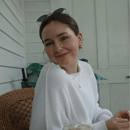Deciding to be pre-med in college requires that one takes several difficult classes, arguably some of the most difficult classes offered by UF. A pre-med’s schedule is filled with organic chemistry, labs, physics, biology and more. There are so many of these classes that it often takes 3-4 years to get through all of them. Seeing all these difficult classes while committing yourself to a career in science may make it seem like that is what you have to focus on: your entire college experience should just be science, science and more science. I am here to tell you this is not true and in fact, only taking science classes may not get you as far as you think it will.
Medicine is largely regarded as a hard science and while that is true, it is not the whole story. Medicine arguably is also a humanity – it demands that practitioners draw upon their human experience to connect with patients and build a safe and trusting environment. This human experience is something that comes naturally, but one cannot solely rely on human nature and connection to make it in medicine. Learning the skills needed to connect with patients is something that is difficult to learn on your own, but it can be learned through non-STEM college classes.
Beyond taking classes to harness your patient skills, it is essential to learn about the patient populations you may serve. While learning about chemistry and biology is essential for the scientific aspect of medicine, learning about the intricacies of the different patient populations is arguably equally as important. Taking classes that focus on minority populations like African Americans, Hispanics and LGBTQ+ etc are incredibly important to not only learning about the patients you will serve, but how you might be able to tackle glaring health disparities across the country.
Going even beyond the country, cultural competency is something many medical schools include in their admissions requirements. Understanding how to interact and connect with people from all kinds of cultures is vital to not only convincing medical school admissions panels to grant you a seat, but also to being an effective physician. This includes understanding cultures from abroad, but also cultures that exist locally. As a clinician, it is imperative that you can switch going from patient to patient throughout the day with their culture in mind.
That being said, you might be wondering what classes you could take to learn this? I have personally made an immense effort throughout my college career to seek out such classes. For one, I chose my major with this in mind. However, you do not have to pick a non-science based major to acquire cultural competency and therapeutic communication skills. You can double major or choose a minor to add in these classes. Even if you do not have the room to add a double major or minor, you can likely still squeeze in some of these informative classes. As far as specific classes go, many of these classes are offered by the Women’s Studies Department. In fact, within this department, the health disparities minor is based as well as the women studies minor and major. Some of my favorite classes have been “Reproductive Justice” and “Health and Discrimination” both with Dr. Joanna Neville. I have also greatly enjoyed the “History of American Medicine” and many of the health science classes like “Therapeutic Communications” and “US Health Care”. Admittedly, it is hard to squeeze in these classes in your overall schedule, but I implore that you try in order to become a person focused physician in a balance to a science focused physician.


